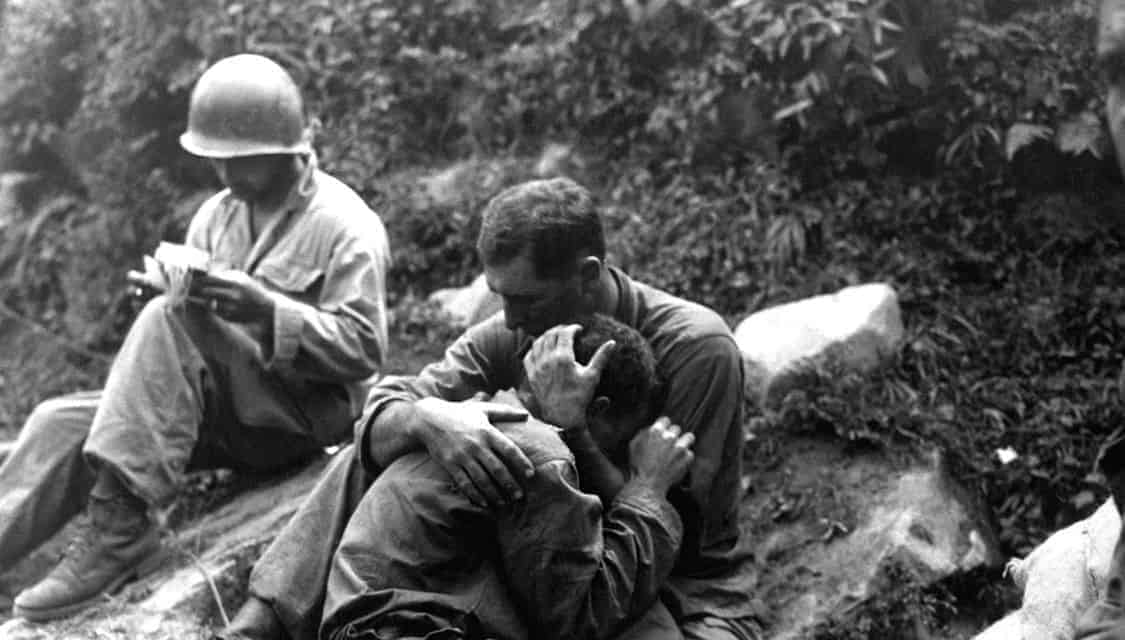On this day in history, the Korean War ended. It was one of the bloodiest of the Cold War period. After three years of a bloody stalemate, the United States, Communist China, North and South Korea agree to an armistice, bringing the fighting to an end.
The Korean War began on June 25th, 1950, when North Korean forces invaded South Korea. They wanted to establish a unitary Korean state under the leadership of the Korean Communist Party. The invasion managed to push back South Korean and American forces.
The United Nations called for military action to help South Korea and in a few days American land, air, and navy joined the battle.

General MacArthur retrieved the situation when he launched an amphibious attack on Inchon. The U.S. intervention turned the tide of the war, and soon the U.S. and South Korean forces had taken much of North Korea and it looked as if they were about to crush the Communists. This alarmed the communists in China and they decided that they could not accept an American army on their border. In the winter of 1951, almost a million Chinese troops began attacks against the American and South Korean army. The Chinese drove the Americans and South Koreans out of the North. However, under MacArthur and later General Ridgeway, the UN forces stabilized the situation and the war become a bloody stalemate.

The situation on the front line was fixed for almost three years and no significant victories were recorded by either side. Many in America wanted to drop the A-bomb or to expand the war into China. Hardliners in Washington wanted to use the Korean War to push the Communists out of China by launching air raids and inflicting a heavy military defeat on the People’s Army. Many Americans simply wanted to end the war.
Dwight D. Eisenhower became president and announced a new Korean strategy. Eisenhower went to Korea and he managed to break the diplomatic logjam at the peace talks that had been dragging on for two years. The President had threatened to use the nuclear bomb in order to end the war. He allowed the Nationalist Chinese government in Taiwan to launch air raids on mainland Communist China. He also persuaded the South Koreans to be more realistic in their demands.
The Armistice agreed to several things and they established the current front line as the border between North and South Korea. They also agreed to an exchange of prisoners and mechanisms to ensure that either side did not resort to war or armed aggression, in order to defend their legitimate interests.
The armistice was not followed by a peace treaty and even today the Korean Peninsula is still a very tense region.

